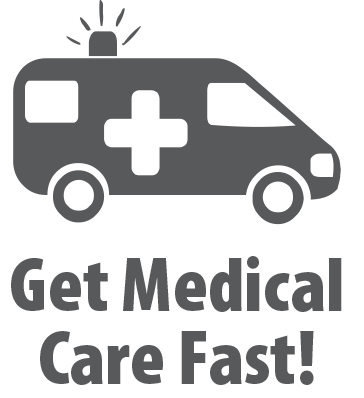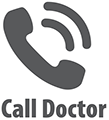Pregnancy & Prenatal Care
More Than One Baby
Causes
Having more than one baby may happen more often if:
• There is a family history of it.
• The mother is taking medicine or having treatment to get pregnant.
• She is an older mother.
More than one baby can happen in two ways. The most common way is when two or more eggs are fertilized by two or more sperm. These babies can be either boys or girls. They may or may not look alike. They are called fraternal twins or triplets, etc.
Less common is when an egg is fertilized by a sperm as usual. Then, for some reason, the egg splits apart. Two or more babies grow. They are the same sex. Their hair, eyes, and skin will be the same color. They are called identical twins or triplets, etc.
In rare cases, the egg doesn’t split apart all the way. The twins stay joined together at the head or back. Or they may be joined at some other part of the body. They are called conjoined twins. Sometimes surgery can separate them after they are born. This can be very risky.
Signs
At first, a woman may not know she is carrying more than one baby. Her health care provider can usually tell within 8 weeks, though. Signs include:
• Severe nausea and vomiting
• The uterus is growing faster than usual.
• There are two or more heartbeats.
• An ultrasound picture of the uterus shows more than one baby.
Risks
The health care provider watches for risks that come with carrying more than one baby.
• Low iron and oxygen in mother’s blood.
• Less and less blood flows to the baby.
• High blood pressure and preeclampsia.
• Gestational diabetes.
• Difficult labor
• Preterm labor and preterm birth. Preterm birth happens 3 weeks or more before the due date.
• Low birth weights. A low birth weight is less than 5-1/2 pounds.
Some mothers can have a vaginal birth with more than one baby. Others may need a Cesarean section (C-section) for a safe delivery.
Questions to Ask
Question
01
With vaginal bleeding, do you have any of these signs?
• Fainting. Racing heart. Severe headache, feeling dizzy, blurred or double vision.
• Extreme swelling of the face, hands, ankles, or feet
• Pain in the upper right part of your abdomen
• Rapid weight gain (more than 3 pounds a week in the 2nd trimester or more than 2 pounds a week in the 3rd trimester)

Get medical care without delay. If symptoms are life threatening go to the ER or call 9-1-1. Don’t call 9-1-1 or use the ER if symptoms do not threaten life. Ask your doctor ahead of time where you should go for a problem that needs prompt care, but not emergency care.
x
Question
02
Do you have a lot less movement from your babies than what you’ve been having? Or, no movement from the babies after you lie on your side or 1 hour after you eat a meal?

Get medical care without delay. If symptoms are life threatening go to the ER or call 9-1-1. Don’t call 9-1-1 or use the ER if symptoms do not threaten life. Ask your doctor ahead of time where you should go for a problem that needs prompt care, but not emergency care.
x
Question
03
With vaginal bleeding, do you have these signs?
• Pain in the uterus and back
• Throwing up
• Severe headache
• Sudden urine decrease

Call your doctor or health care provider and state the problem. He or she can decide what you should do.
x
Question
04
Are you between weeks 20 and 36 of your pregnacy and do you have any signs of preterm labor?
• Contractions that: Occur every 15 minutes or closer (for more than 1 hour). Last from 20 seconds to 2 minutes each. Come closer together as time goes on.
• Sudden gush of vaginal fluid (your “bag of waters” breaks). Change in vaginal discharge. Pressure in your pelvis, back, or in the insides of your thighs. A dull backache below your waist. Cramps like you get with a menstrual period.

Call your doctor or health care provider and state the problem. He or she can decide what you should do.
x
Question
05
Do you have any of these signs of anemia?
• Extreme tiredness or weakness
• Feeling out of breath
• Sore, red tongue
• Your inner eyelids and skin look more pale than usual.

Call your doctor or health care provider and state the problem. He or she can decide what you should do.
x
Self-Care / Prevention
• You will need more prenatal health care visits than with just one baby. You will need extra blood tests and blood pressure checks. Your provider will need to make sure each baby is doing well. Call your provider whenever you have questions during your pregnancy.
• Eat healthy foods.
• Eat smaller meals more often. This helps ease things as your growing uterus presses on your stomach.
• Take your prenatal vitamins (vitamin pills) every day. They should include iron and folic acid. They will supply other needed vitamins and minerals, too.
• Don’t smoke, drink alcohol, or take drugs.
• Exercise only with your health care provider’s consent. Women carrying more than one baby tire more easily. In later pregnancy, avoid any activity that takes a lot of energy. Avoid any activity that could injure you or your babies.
• Lie on your left side. This helps blood flow to the babies. It may help keep blood pressure down, too. It also makes you more comfortable. Don’t lie on your back.
• Reduce stress in your life. Stress can lead to early labor.
• Get enough sleep. Learn and use methods to relax.
• Follow your health care provider’s advice on rest during the day.
• Get help with daily tasks, like caring for other children. If you can, take time off from your job after the 24th week.
• Watch for signs of preterm labor. Your provider may have you wear an electronic monitor. It senses contractions of the uterus.
• Choose a well-equipped hospital. Do this with your health care provider’s help. The hospital should be well suited for births of more than one baby. Choose one with a neonatal intensive care unit (NICU). This has special staff and equipment for babies born too early.

Download an offline pdf file.
RELATED ARTICLES
<
>
2021 © American Institute for Preventive Medicine - All Rights Reserved. Disclaimer | www.HealthyLife.com








